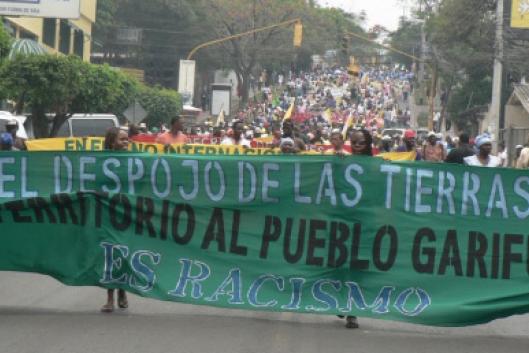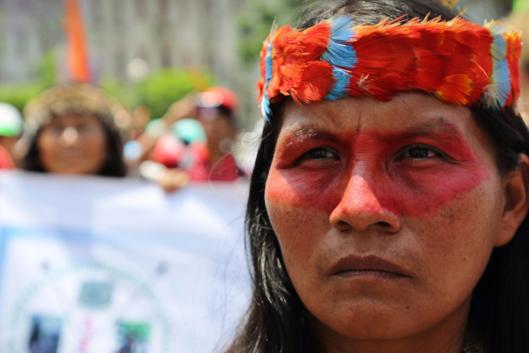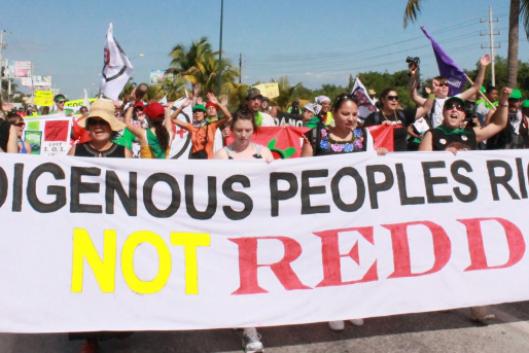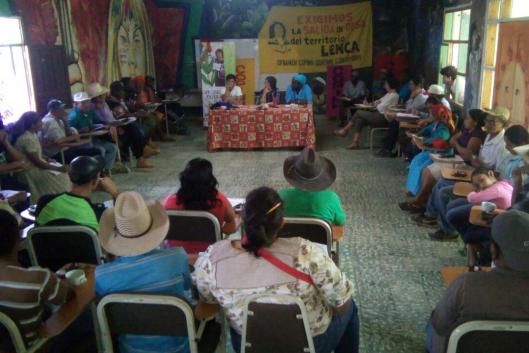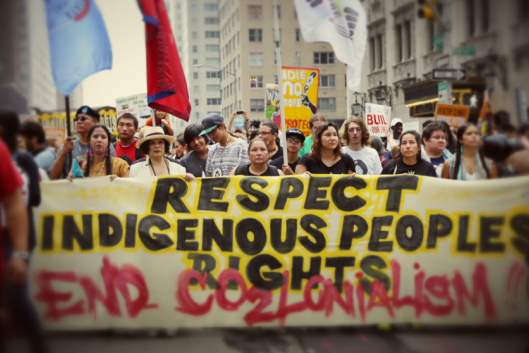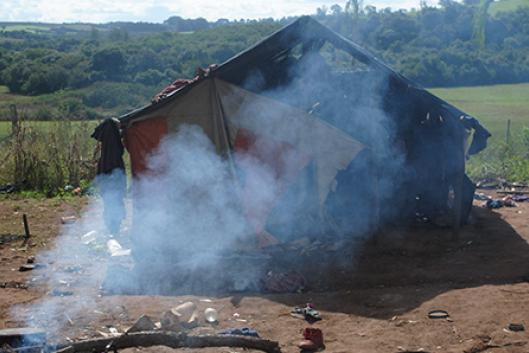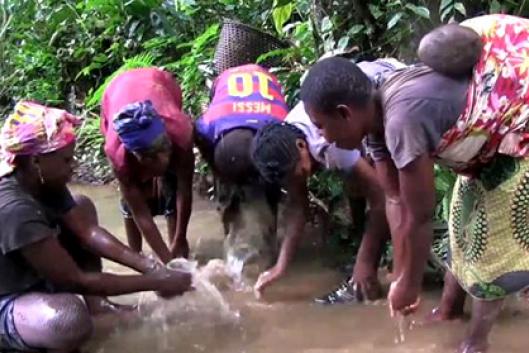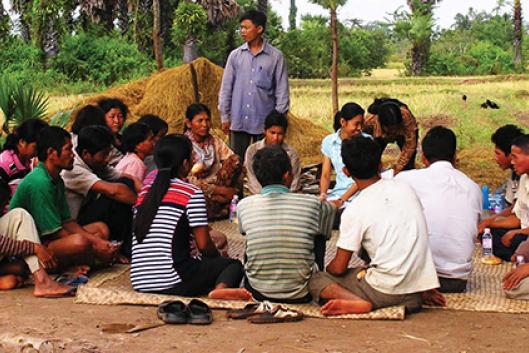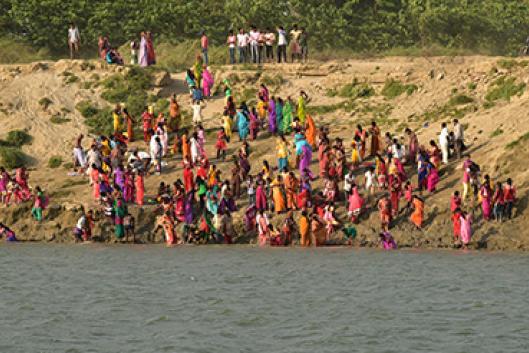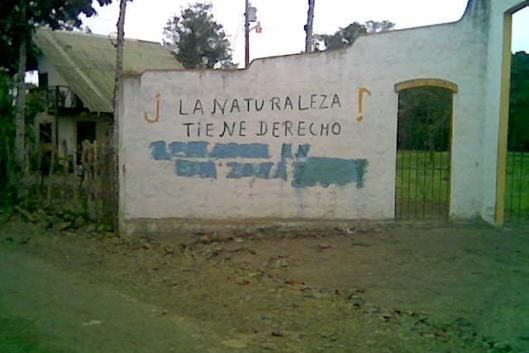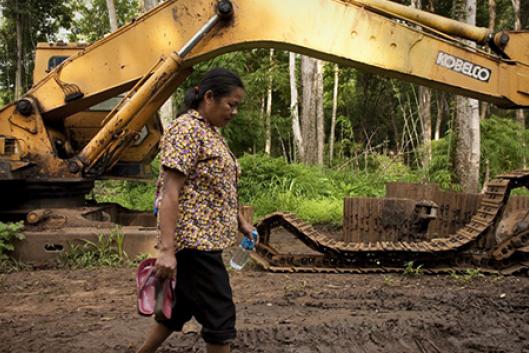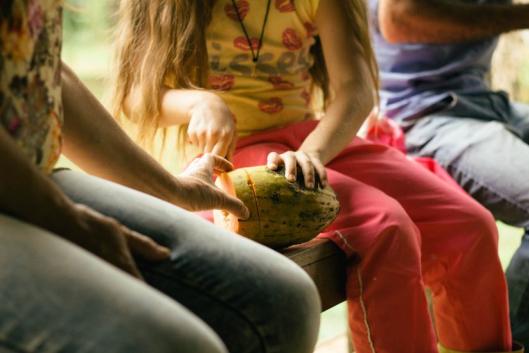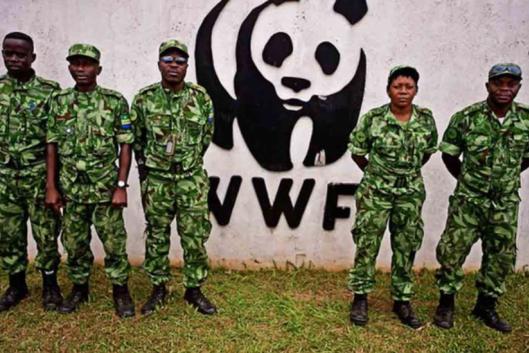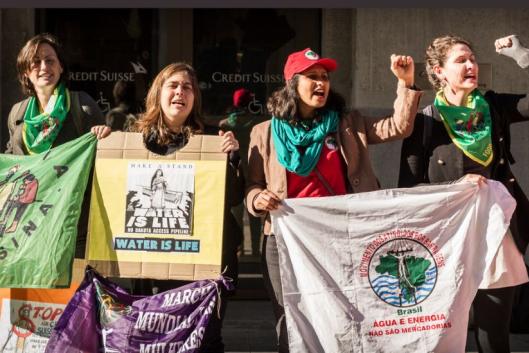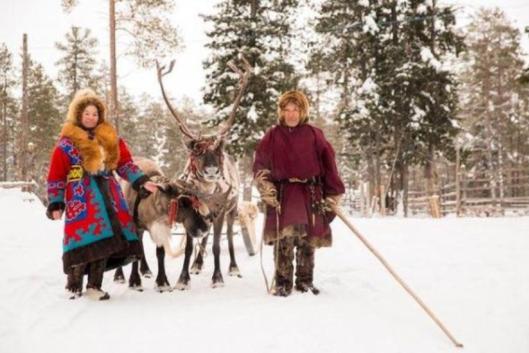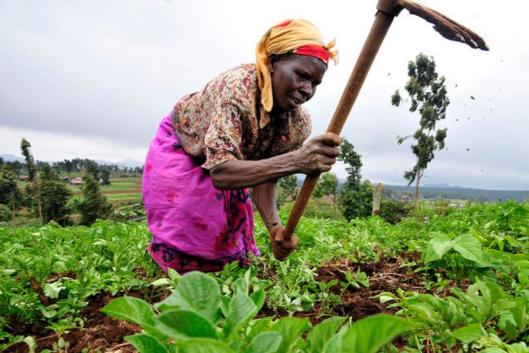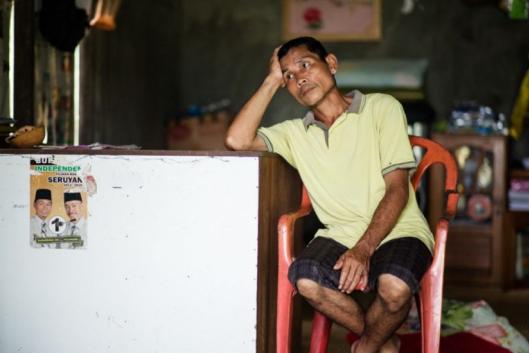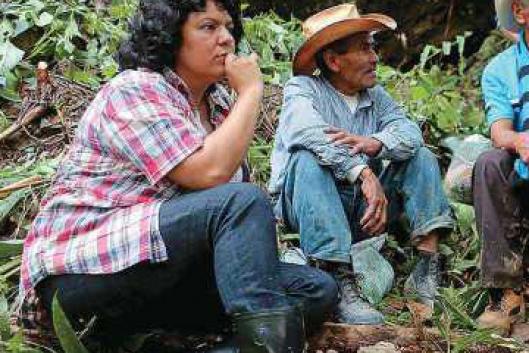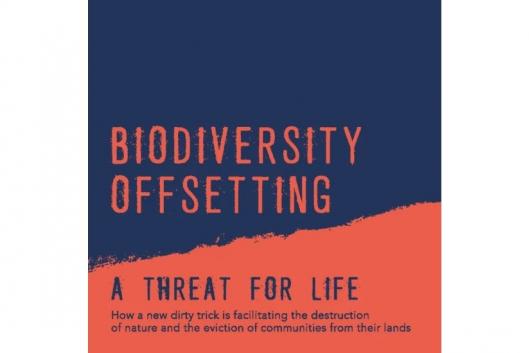Rights - land and territorial rights, human rights, women rights, peoples’ rights, rights of nature, etc.- have long played a role in the struggles of local resistance, social movements, support organizations and groups in one way or another. So, why did we feel it important now to focus a WRM bulletin on this topic?
Bulletin Issue 234 – November 2017
Traps, dilemmas and contradictions of the rights discourse in the forest
WRM Bulletin
234
November 2017
OUR VIEWPOINT
TRAPS, DILEMMAS AND CONTRADICTIONS OF THE RIGHTS DISCOURSE IN THE FOREST
-
23 November 2017In August 1838, a young man called Frederick Bailey escaped from slavery in Baltimore on the east coast of the United States (US). Less than three weeks later, walking through his new home city of New Bedford, Massachusetts, he spotted a pile of coal that had been delivered to the street in front of a house. Bailey offered his services to carry it safely away into storage. Once the job was done, the lady of the house put into his hand two silver half-dollars.
-
23 November 2017The foundation of critical thinking, then, is in the dissent of the existing state of things and the search for alternatives, drawing from characterizations of the present situation, whose causes can obviously be located in the past” (1) in memoriam Hector Alimonda The proposal to include forests in the UN climate negotiations is now 10 years old. Since the 2007 climate conference in Bali, Indonesia—within the framework of moving forward with the REDD+ mechanism—the issue of human rights and the rights of indigenous peoples, women, local communities, and others, has been an interplay of actors, scripts, stages, casts and comedies. But above all, special effects and makeup have prevailed (2).
-
23 November 2017Since ILO Convention 169 was ratified in 1995, indigenous peoples in Honduras have demanded the creation of a consultation mechanism to obtain Free, Prior Informed Consent (FPIC). This is in light of the avalanche of "development" projects and programs that endanger the survival of our peoples as differentiated cultures. With the approval of the United Nations Declaration on the Rights of Indigenous Peoples (UNDRIP) in 2007, indigenous peoples' claims on the continent have received a greater push, given that UNDRIP is more precise than Convention 169 on consultation, and it also recognizes the self-determination of peoples.
-
23 November 2017Western colonialists and imperialists have for centuries pillaged and taken the lands, territories and natural resources of Indigenous Peoples (and the rest of the world) with impunity. This impunity extends to the pillage of people themselves through forced labor and slavery. Successor States as they gained independence continued the practice with the same impunity on Indigenous Peoples living within their borders.
-
23 November 2017Interview to Roberto Liebgott, coordinator of “Regional Sul do Conselho Indigenista Missionário” – CIMI (The South Regional from the Indigenous Missionary Council) in Brazil. WRM: Brazil's recognition of indigenous rights in the law has been an example for other countries in the world, and has served as inspiration for indigenous peoples and their struggles in other countries. What would you highlight about this? In 1537, Portugal needed the Church to take a position on the possibility of subjecting "discovered" individuals to slavery. Pope Paul III issued the bula Sublimus Dei, in which he recognized that the "Indians" were people capable of receiving the Catholic faith.
-
23 November 2017In West and Central Africa, the many radically different ways in time and space of how people relate to and manage land reflects the many forms of customary tenure that interact and overlap between themselves as well as with statutory law. This article highlights the reflections of four activists from West and Central Africa.
-
23 November 2017Enclosures have appropriately been called a revolution of the rich against the poor. (1) Commons are not just a “third way” beyond state and market failures; they are a vehicle for claiming ownership in the conditions needed for life and its reproduction. (2) Commons and Commoning In the broadest sense, commons are different kinds of wealth, resources, spaces, values, systems, processes and activities that ‘belong’ to groups or collectivities, and that are actively claimed, created, recreated, protected and restored for collective good and purpose, for present and future generations.
-
23 November 2017In July 2017, on the banks of mighty River Narmada in central India, the sight of people performing rituals on the river bank, fishermen in remote corners quietly angling, pied kingfishers hovering over us and the slowly descending sun provoked a subtle awe in me. I wondered that even though the law in India doesn’t recognise non-human entities to have rights, yet the river’s self-possession is an accepted part of culture, its physical form is merely one aspect of its divinity as its divinity is considered transcendental by communities living around it. And even though the sacred river is destroyed and polluted, its existence demands inevitable and necessary expansion of rights to it.
-
23 November 2017Is it really possible to shift the dominant, colonial, Western paradigm—which sees nature and spaces as resources to be exploited, dominated and controlled—using a tool from a legal or judicial system that is intrinsically linked to thinking from the same paradigm? The answer is NO. But legal tools do, in fact, open cracks in the dominant system and its legal apparatus—cracks through which social movements, which promote critical thinking or uphold libertarian praxis, can navigate. Moreover, the rights of nature challenge the legal world, which obviously is and has been anthropocentric; and they enable us confront a dominant system and dominant policies. (1)
-
23 November 2017When we speak of rights, we almost always refer to the rights of individuals, peoples, and minorities who are fighting for a dignified, more equitable and just life. However, we cannot ignore that corporations, especially large transnationals, also use the rhetoric of rights. Along with States and many international organizations, corporations promote certain rights that trample over people. Rights such as "free trade" or "free competition" help guarantee them access to and control of more and more areas of life. Lands, water sources, forests and mountains on which countless peoples and communities depend are handed over within the framework of large transnational corporations' "commercial rights."
PEOPLES IN ACTION
-
23 November 2017Since 2003, the camp that bears the name of environmentalist, José Lutzenberger, has reconciled the production of foods free of agrochemicals with the recovery of native “Mata Atlantica” forest. For this reason, it was chosen for the Juliana Santilli award, in the category of increasing and conserving agro-biodiversity. The area, which for decades was degraded by landowners' cattle ranching activities, has been slowly recovering. In addition to the recovery and preservation of the native forest, around 90 per cent of what the peasants produce goes to regional schools through the National School Food Program. Read the article here.
-
23 November 2017A new Survival International report documents serious instances of widespread and systematic human rights abuses between 1989 and the present day in Cameroon, the Republic of Congo, and the Central African Republic (CAR) by wildlife guards funded and equipped by the World Wildlife Fund (WWF) and the Wildlife Conservation Society (WCS), the parent organization of New York’s Bronx zoo. Documented abuses and harassment are likely just a small fraction of the full picture of systematic and on-going violence, beatings, torture and even death. Indigenous people are accused of “poaching” because they hunt to feed their families. And they face arrest and beatings, torture and death, while big game trophy hunters are encouraged. Which ‘rights’ are then protected under conservationist projects?
-
23 November 2017In October, the Inter-governmental Working Group of the United Nations Human Rights Council met in Geneva to develop an "an international legally binding instrument to regulate, in international human rights law, the activities of transnational corporations and other business enterprises." The Global Campaign to Reclaim Peoples Sovereignty, Dismantle Corporate Power and Stop Impunity presented its draft Treaty on Transnational Corporations and Human Rights, which was the result of a broad collaborative process among affected communities, social movements and civil society organizations. The struggle for survival, and the strategies deployed by people and communities affected by the companies, inspired the proposals for this Treaty.
RECOMMENDED
-
23 November 2017Russia's Numto Nature Reserve in western Siberia contains a sacred lake, endangered cranes and valuable wetlands for the indigenous Nenet and Khanty peoples. Last year, the nature reserve's borders were redrawn by the regional government to make way for new drilling operations for the Russian oil company Surgutneftegas, forcing out indigenous groups. While Natural resources minister Sergei Donskoi recently projected a 22 per cent increase of protected areas, particularly national parks, by 2025, Indigenous Peoples worry about possible prohibitions to continue their hunting and fishing traditions. Read more (in English) here.
-
23 November 2017An interview with University of Ghana professor, Dzodzi Tsikata, makes it clear how "anyone who declares himself/herself to be a feminist cannot fail to recognize the connection between women's rights and the right to land." Therefore, she adds that "women's rights affect many interconnected spheres that cannot be separated. If one focuses only on one aspect and ignores the rest, women's rights are not realized." Read the full interview in Spanish here.
-
23 November 2017The commercial power of the oil palm industry in Indonesia is intertwined with politicians and government authorities at the highest level, which leads to violent grabbing of land from peasant and traditional communities. This article, part of the series “Indonesia for sale”, is the story of money, politics and power in Seruyan, Borneo, Indonesia, one of the main focal areas of the oil palm industry in the country. Access the article in English here.
-
23 November 2017The current wave of murders directly aimed at environmental and feminist activists demands a reflection that includes a gender perspective. The many community projects based on the cooperative model of self-management are being led by women: women who know and want to be free of exploitation—be it work-related, material, cultural or patriarchal—and who understand they are not free as long as their sisters are not. Read the article in Spanish here.
-
23 November 2017This new briefing, published by the NGOs Re:Common and Counter Balance, exposes the absurd logic behind biodiversity offsets and explains how it is deployed by private companies – with the support of governments and the legitimization of some conservation organizations and academics – to greenwash their reputation and continue with business-as-usual. Access the briefing on English here.
